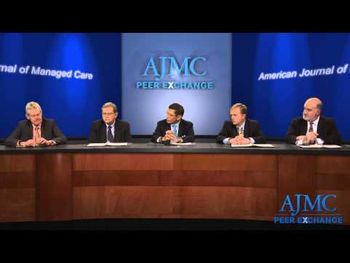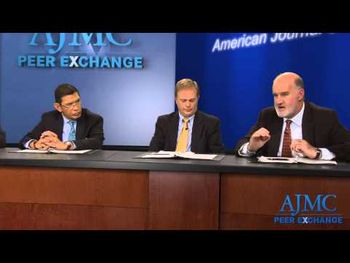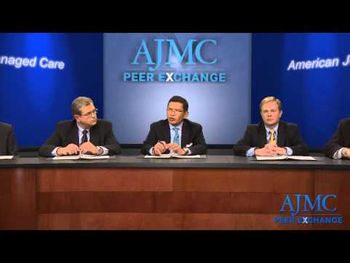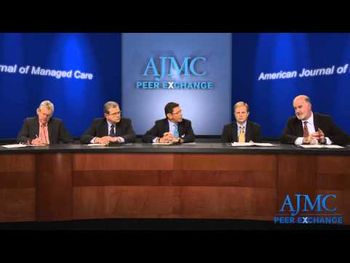
Oncology
Latest News
CME Content


Progress in treating multiple myeloma, or cancer of the plasma cells in bone marrow, has advanced significantly over the past decade. Today, questions about the disease often involve finding a treatment that balances the goal of putting a patient into remission especially if stem cell transplantation is a possibility against the toxicity of the treatment itself.

Collaboration Between Academia and Pharma to Bring New Therapies to Market More Important Than Ever
With grants from government sources looking less certain, partnerships between academic research center and pharmaceutical companies are more important than ever to keep breakthrough hematology therapies in the pipeline, said Burt Adelman, MD, a hematologist who serves as executive vice president and chief medical officer for Dyax Inc.

New therapies to treat chronic lymphocytic leukemia (CLL) will receive plenty of attention this week at the 55th American Society of Hematology Annual Meeting and Exposition in New Orleans. At an education session that opened the meeting Saturday, a physician with the Mayo Clinic made it clear that cost considerations are a reality for many older patients.

Research on how tools impact health, costs is 'inconclusive,' but clinicians say better-informed patients avoid unnecessary care, frustration














More than 200 participants gathered in Baltimore for "Patient-Centered Oncology: Real-World Perspectives," which covered genetic testing, how to engage patients in decision-making, and how the "culture of medicine" continues to drive up costs despite calls to abandon the fee-for-service payment model.

At The American Journal of Managed Care's (AJMC's) Patient-Centered Oncology Care: Real-World Perspectives (PCOC) conference, held November 14-15 in Baltimore, MD, discussion squarely centered on the ideals of making oncology care more patient-focused.

Some of the most significant changes in healthcare reform are being led by oncologists, especially as innovation and team-based collaboration are increasingly becoming the standard in cancer care delivery.

Oncologists are at the forefront of payment and delivery reforms sweeping medicine today, a former head of Medicare said.

The disparities in survival among node-positive breast cancer patients of African American and Hispanic heritage are not explained by nodal surgery utilization.

An AJMC Panel Discussion







